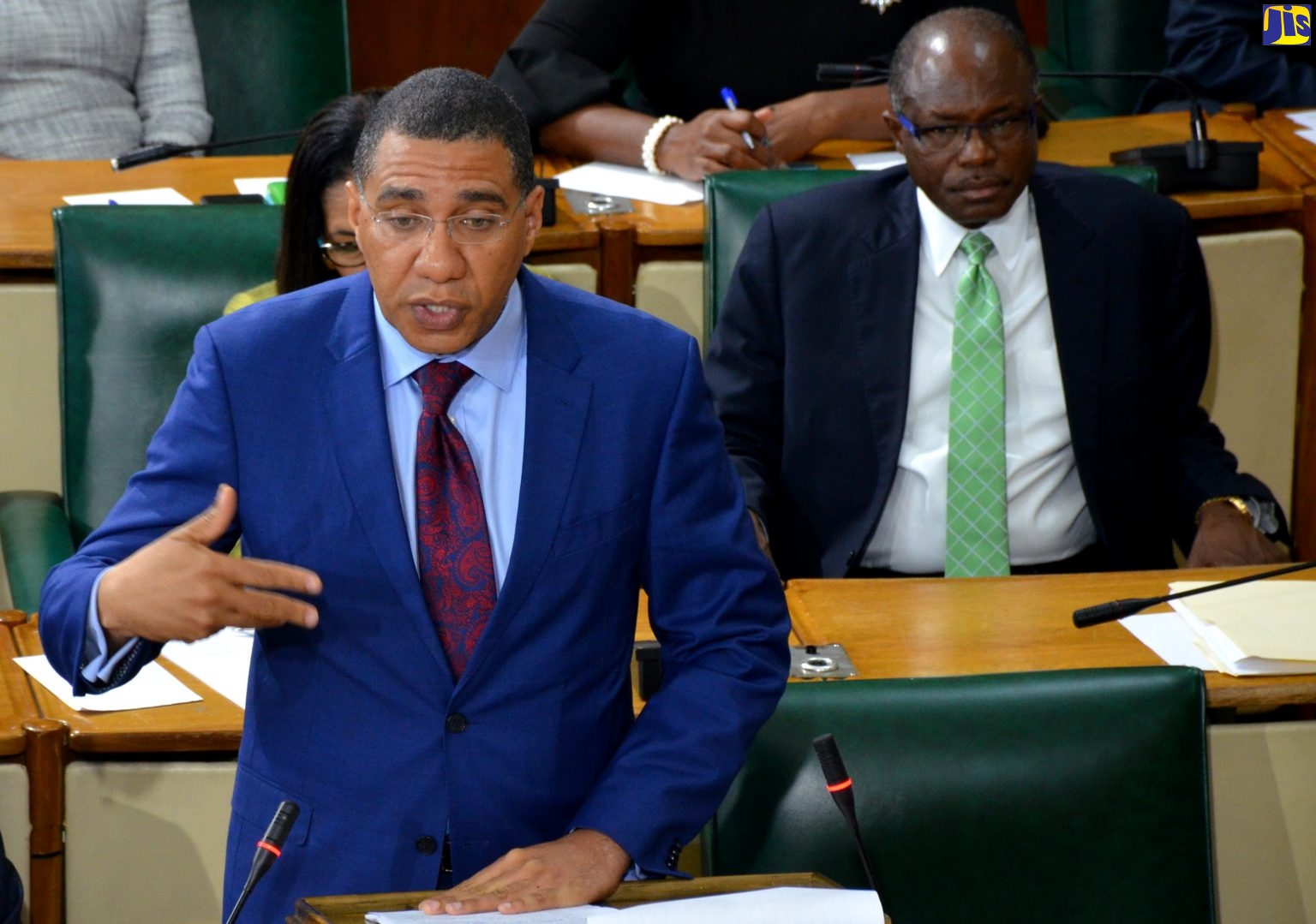House Approves Bill to Retake Ownership of Petrojam Shares
By: , February 20, 2019The Key Point:
The Facts
- The Compulsory Acquisition (Shares in Petrojam Limited) Act, 2019 was piloted by Prime Minister, the Most. Hon. Andrew Holness.
- In his address, the Prime Minister said the decision to move in the current direction was not taken lightly, noting that Petrojam and Jamaica have been left at risk due to years of inaction.
The Full Story
Legislation to retake ownership of the 49 per cent shares in Petrojam held by the Venezuelan State-owned oil and natural gas company, Petróleos de Venezuela (PDV) Caribe, was passed in the House of Representatives on February 19.
The Compulsory Acquisition (Shares in Petrojam Limited) Act, 2019 was piloted by Prime Minister, the Most. Hon. Andrew Holness.
In his address, the Prime Minister said the decision to move in the current direction was not taken lightly, noting that Petrojam and Jamaica have been left at risk due to years of inaction.
“Technical assessments have found that refining operations will be negatively impacted by 2020 if Petrojam is not in a position to execute Phase 1 of the refinery upgrade (Vacuum Distillation Unit Project),” Mr. Holness noted.
“This is primarily due to the imminent international obligations as stipulated by the International Maritime Organization regulations regarding sulphur, which will become effective on January 1, 2020, and the transition by the Jamaica Public Service Company Limited (JPS) to Liquefied Natural Gas for its 190 MW power plant by June 2019, thereby reducing the need for heavy fuel oil produced by Petrojam,” he added.
Mr. Holness argued that without an upgrade, Petrojam would be unable to further process heavy fuel oil (HFO) into high-value products, and having lost a major customer in JPS, Petrojam would become unprofitable.
The Prime Minister also cited the United States Executive Order 13808 dated August 24, 2017, which essentially prohibits United States persons from entering into specified transactions with the Government of Venezuela and any political division, agency or instrumentality thereof, including PDVSA.
“While Petrojam itself was not identified as a ‘sanctioned entity’ under the Executive Order, the fact is that its banks and correspondent banks, which facilitate basic transactions with suppliers and service providers, are considered US persons, and were, therefore, at risk or at perceived risk of high fines for breaching such sanctions, and accordingly, they were hesitant to continue providing such services which were fundamental to the most basic operations of Petrojam,” he said.
The Prime Minister explained that the Government has no choice but to take action in the interest of preserving the energy security of Jamaica.
“It is important to understand that the Government of Jamaica does not see this as a political issue… . I want to make it absolutely clear that the decision to acquire the shares is an economic decision,” Mr. Holness emphasised.
The Prime Minister also highlighted that payments to and from Petrojam have been subjected to increased due diligence by the primary suppliers of lines of credit, as well as intermediary banks, and the disruption or delay of transactions for Petrojam Limited has become a source of unease for Petrojam’s suppliers.
“An even more serious concern is the overseas suppliers of goods and services to Petrojam. Owing to Petrojam’s continued association with Venezuelan entities, some suppliers have advised Petrojam that they are no longer willing to take the risk of supplying to Petrojam, and others have expressed grave concerns,” Mr. Holness said.
The need for an upgrade of the refinery was recognised from as early as the 1990s, and Petrojam and the Petroleum Corporation of Jamaica (PCJ) have undertaken several studies on the refinery upgrade.
“The challenge has always been the cost of the upgrade, which can run into hundreds of millions of dollars, with estimates as much as more than a billion dollars, depending on the extent of the upgrade,” Mr. Holness said.
In February 2005, a Letter of Intent was agreed between the Bolivarian Republic of Venezuela, acting through its Ministry of Energy and Petroleum, and the Government of Jamaica, acting through the Ministry of Commerce, Science and Technology, confirming, in principle, that they would pursue feasible options for the improvement of the refinery.
Additionally, in June 2005, further to the Letter of Intent, a Memorandum of Understanding was signed between the same parties, with a view to establishing a Joint Venture.
On August 14, 2006, a Joint Venture Agreement (JVA) was signed between the PCJ, Petrojam and PDV Caribe SA (PDV Caribe) to cooperate in the ownership and management of Petrojam and to undertake the refinery upgrade, which was recognised as critically important for the energy security of Jamaica.
“It stated that PDV Caribe SA and the PCJ agreed to embark on a Refinery Upgrade Project (RUP) through the medium of Petrojam. The JVA defines the RUP as a project that will be carried out to expand the Kingston Refinery Processing capacity from 36 kilo barrels per day to 50 kilo barrels per day,” Mr. Holness said.
The first phase of the RUP will include a revamp of the Atmospheric Distillation Unit, and the installation of new units, including a Vacuum Distillation Unit, Naphtha Reformer. Phase II will be evaluated aiming at incorporating a Deep Conversion Unit in the Refinery.
“The JVA also set out that in order to facilitate its purpose, the parties would enter into a Share Sale and Purchase Agreement pursuant to which PCJ would sell, and PDV Caribe would purchase, shares in Petrojam. The Share Sale and Purchase Agreement was signed in August 2007, selling 49 per cent of the shares in Petrojam for the sum of US$63.7 million, based on valuations by internationally recognised consultants with expertise in valuing assets in the energy sector,” the Prime Minister explained.
Mr. Holness pointed out that despite discussions and negotiations, the RUP has not been achieved.

